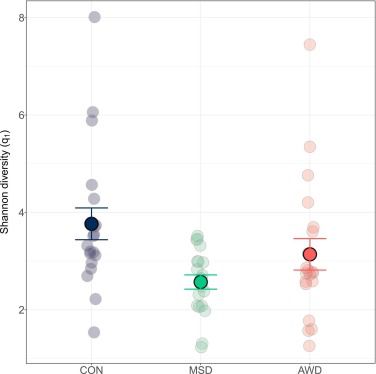
🌾 Focused on understanding the role of biodiversity in rice production
🌐 https://nperezmendez.weebly.com/
📸Wildlife photography in https://www.instagram.com/raw_natura
Views my own
OR
>rice farming agro-ecosystems seek to save water
>which results in fewer wetland-ecosystem semi-aquatic inverts
>so jumping spiders jump less ofter
#farmland #ecology 🧪


#CarbonTunnelVision #RiceFarming #Agroecology #GHG #Biodiversity #SustainableAg
#CarbonTunnelVision #RiceFarming #Agroecology #GHG #Biodiversity #SustainableAg



– AWD reduced methane by 92.5%
– MSD by 67.3%
when compared to continuous flooding. This confirms strong mitigation potential associated to the drainage periods, which inhibits methanogenesis.

– AWD reduced methane by 92.5%
– MSD by 67.3%
when compared to continuous flooding. This confirms strong mitigation potential associated to the drainage periods, which inhibits methanogenesis.
* Traditional continuous flooding (CONV) – no drying periods during the growing season
* Mid-Season Drainage (MSD) – 1 drying period
* Alternate Wetting and Drying (AWD) – Multiple drying periods

* Traditional continuous flooding (CONV) – no drying periods during the growing season
* Mid-Season Drainage (MSD) – 1 drying period
* Alternate Wetting and Drying (AWD) – Multiple drying periods



